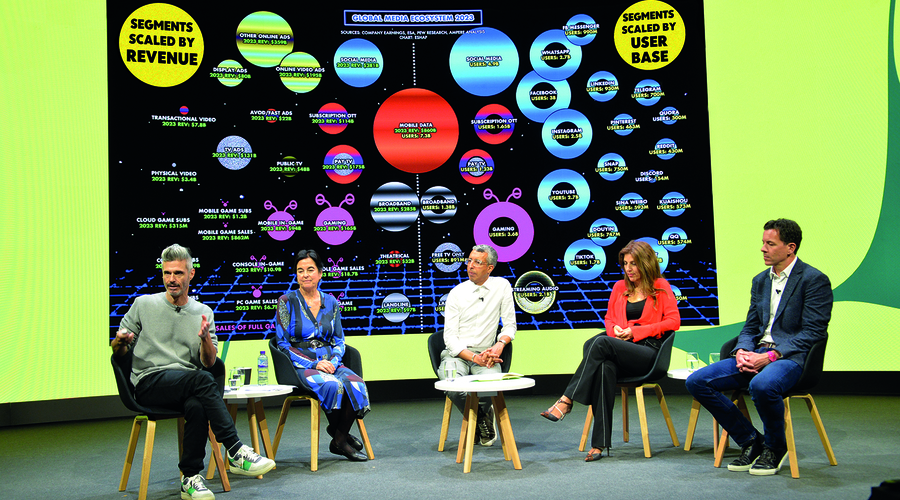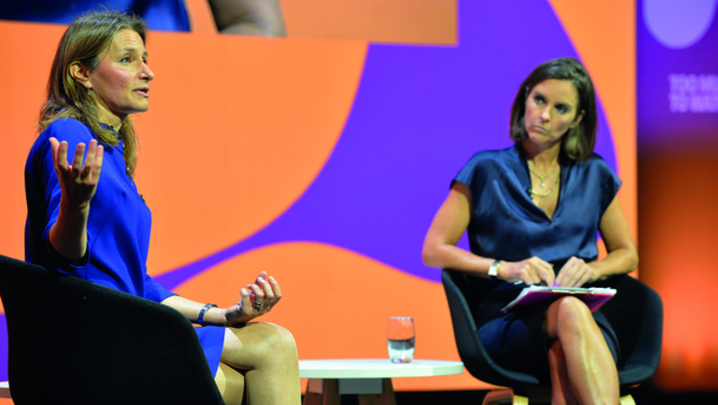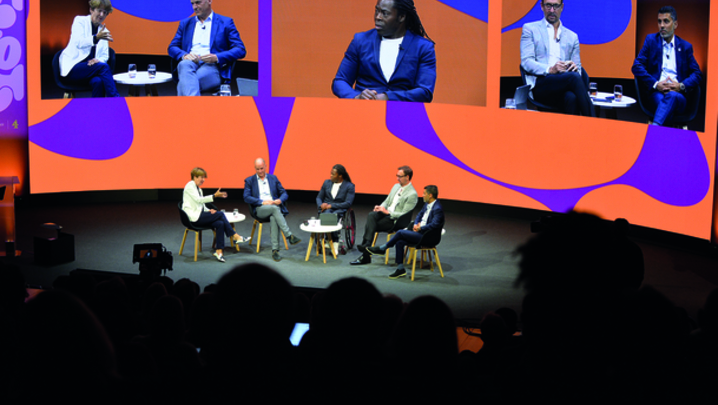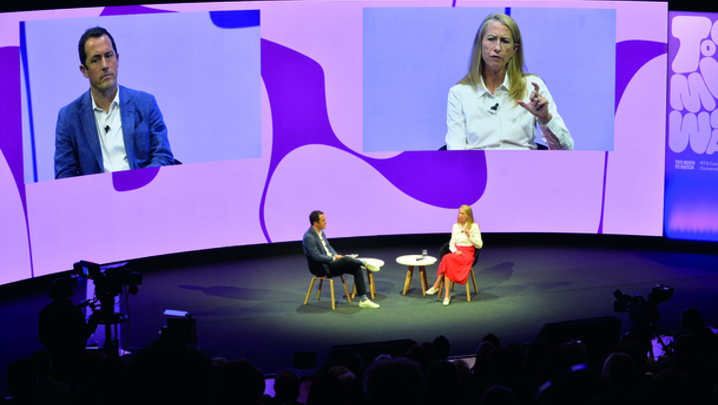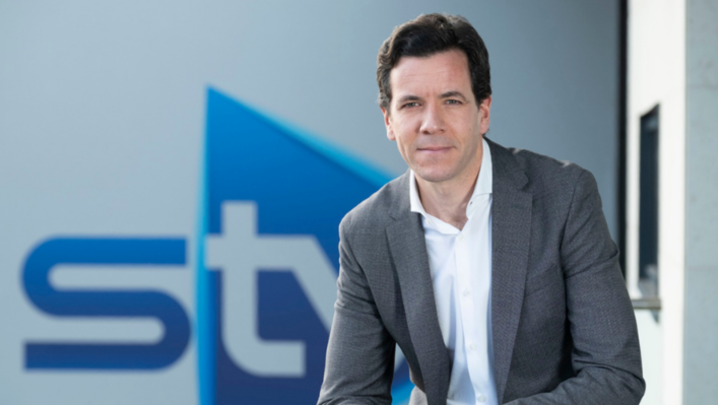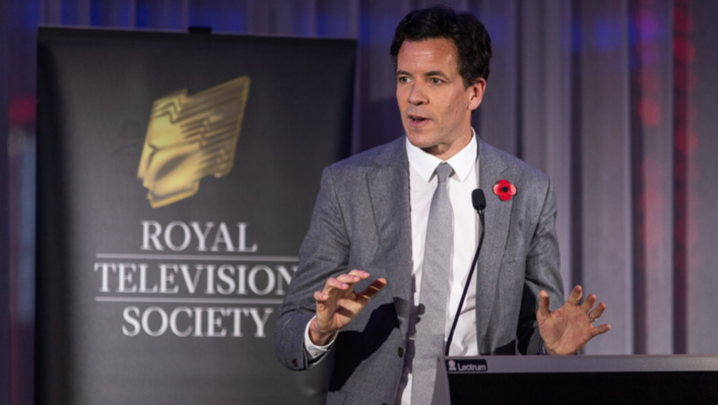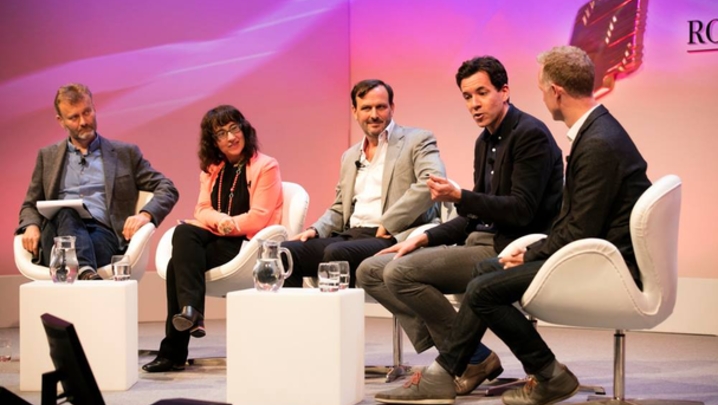Local content is king because it is a strong driver of audience engagement
Local content offers a way forward for UK broadcasters and producers – in television, big is not always best. In the “new era of media”, claimed media cartographer Evan Shapiro during an effervescent presentation: “The user is in complete control of what they’re watching.”
Focusing on the big tech players that dominate his map of the most valuable media and tech companies, he said: “You can’t beat them at scale. In fact, in many cases, you have to work with them and compete with them simultaneously… you have to both bear-hug them and keep them at arm’s length.
“If you think you’re going to be able to survive in a world where you need to attract the next generation of consumers without working with YouTube, the largest video platform and television channel on the face of the Earth…, you’re out of your goddamn minds.”
Fortunately for TV producers, he continued: “Content is still king. Yes, big tech will be involved in probably all our content… but they need you just as much as you need them. They cannot survive by just being pipes: your intellectual property is the blood in their veins. You need to swagger when you walk into the room – they need you.”
Offering a parallel between his health and that of TV, he continued: “I’ve had a terrific year… I’m probably at the peak of my game and then, about two months ago, I was diagnosed with cancer.”
During the Covid pandemic, he said, media companies thought that they, too, were “at the peak of their game – lockdown had created a false sense of security. It created this opportunity to get these streaming services that they were all launching [to the point of] success very quickly, but, at the heart of the models… there was cancer in the system.
“My cancer, follicular lymphoma, is incredibly manageable. I will live my full lifespan. [Likewise], everything that ails our media ecosystem is manageable, but you have to understand the world changed four years ago and now we have to catch up with it…
“We need treatment now, not later. We are not coming to a new era; we are there already. And the new users between the ages of five and 25 are dictating the rate of change, which is now constant.
“In the new user-centric video era, video, social, audio and gaming are not silos – the consumer sees them all coming through the same screen… the fastest way to lose control of your media ecosystem is to cede control of your consumers… to big tech.”
'Big tech needs you… you need to swagger when you walk into the room'
He concluded: “We have too few people at the top of our media companies who look and act and know what it’s like to be the users [of the] content.”
Session chair Kamal Ahmed, former BBC News Editorial Director, suggested that “too many media companies are still led by dinosaurs who are trying to sweat an old model”.
Analyst Claire Enders responded: “That’s true of the US – there are an awful lot of really old people… but, in the UK, we have an incredibly diverse leadership and female-led [organisations].”
She added that the UK’s public service broadcasting system – “the biggest in the world”– together with the licence fee and dominant pay-TV company Sky and its smaller rival, Virgin, offers “extraordinary levels of differentiation with SVoDs… that makes for a large number of sustainable businesses”.
Shapiro interjected: “The world is 63% under the age of 40; Europe is the upside down of that, so a lot of the change, from a consumer standpoint with younger generations, is on its way here.”
Simon Pitts said: “Viewers don’t really care whether you have global scale or not; they care that your content is good. Good increasingly means, in the UK, relevant, [which means] UK stories, UK dramas, UK news, UK sport and, in our case, Scottish.”
He pointed to data from the first half of the year, which showed that, of the top 500 programmes across all channels and streamers in Scotland, 76% were on his channel, STV, 19% were on BBC One – and none were on Netflix.
“The most popular show on our channel this year is a Scottish drama by Irvine Welsh. On Netflix, the most popular show in the first half of the year was a Lewis Capaldi documentary. [On] Amazon it’s the same picture – The Rig with Martin Compston. This doesn’t just tell you that local content matters: it tells you that it almost always wins.”
Notwithstanding this success, he said: “There is a real imperative to diversify.” STV is investing in its studio business and streaming service. “This year, for the first time, more than half our profit will come from those new areas – five years ago, we were 80% dependent on linear-TV advertising.”
Paramount Global’s Maria Kyriacou pointed to the five years of doubledigit growth enjoyed by Channel 5 streaming service My5 as further proof that local programming wins out. The secret of its success? “British content – it’s as simple as that,” she said.
Shapiro agreed: “Local content is going to be king. The big tech death stars are coming in but they’re not here to put you out of business… they know that they can’t afford to spend the same amount of money per consumer on local content that you can.”
British TV can only go so far on its own without regulation. Pitt said: “The asymmetry of power, I may not need to tell you, between STV and Amazon is fairly pronounced – we have to remind them who we are when we go into the room. We need that Media Bill; we need intervention for us to be at the top table when it comes to those media choices on people’s phones.”
Kyriacou added: “Ultimately, it’s [about] where our audience is going, and we’ve talked this to death as an industry – make sure you’re following them and don’t make excuses about not doing it.
“It’s [about] moving to a streaming model; moving to IP [hence] our participation in Freely [the new online service from Everyone TV; [calling on] the Government to [progress] the Media Bill so we are supported as PSBs and British content continues to be supported into the future.
“What’s on us, though, is to make sure that our platforms [perform] next year. For us, it is about updating the My5 platform, making it stronger for users, a better user experience, a better advertising experience. The one big shining star for us in advertising is that AVoD’s going to grow.”
Session Three, ‘The future of the media universe – is scale the only way?’ was chaired by Kamal Ahmed, co-founder of The News Movement. The panellists were: Claire Enders, founder of Enders Analysis; Maria Kyriacou, President, Broadcast and Studios, International Markets, Paramount Global; Simon Pitts, CEO of STV Group; and media cartographer Evan Shapiro. The producer was Helen Scott. Report by Matthew Bell.

